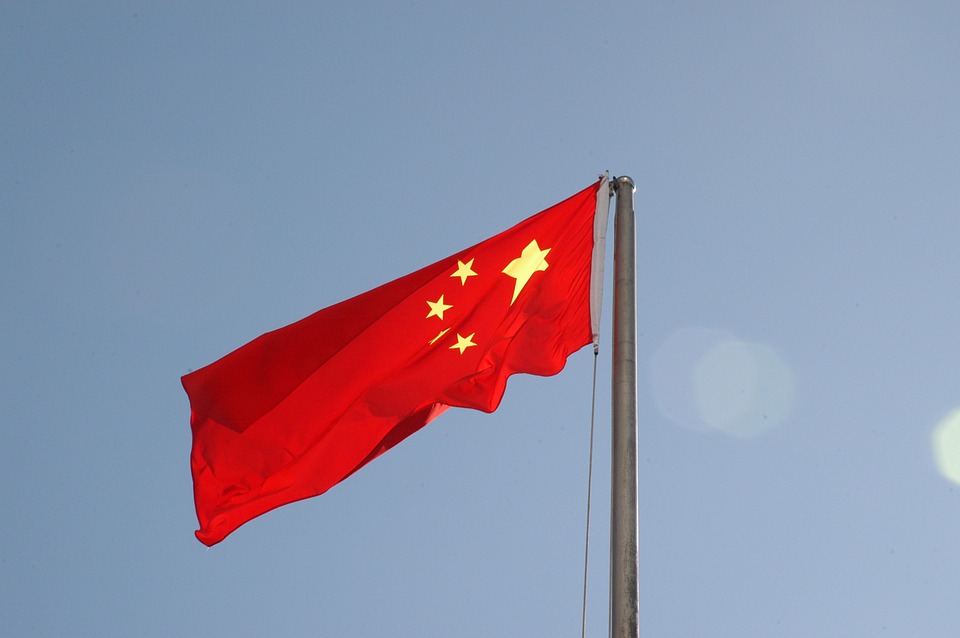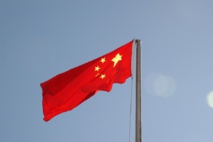Nothing normal
I just went for a week to China, where attended the Boao Asia Forum - conference such as the World Economic Forum in Davos. The theme of my section was that the Chairman Xi Jinping called the "new norm" for the Chinese economy: the era of relatively slow growth after three decades of neck breaking growth of more than 10% per year.
However, the results of the Chinese economy are staggering even now. While it certainly is facing many difficulties, the main question is how likely it is that they will undermine economic growth.
The words "new norm" is a clever wording of Chinese leaders, who must explain to the country's 1.4 billion citizens why does the economy no longer grow at 10% per year. Nevertheless, there is nothing "normal" in the economy, which is already two times larger than Japan and is likely to overtake the European Union over the next five years.
I tried to talk to people about the difficulties faced by the economy. Many international observers worry about overheating housing market in the country and the credit boom linked to it, and I thought, would not it be too vigorously that I reacted to these risks? But talks convinced me that both problems are likely to be solved.
Five problems
The housing market is really in a bad condition. But, as it was noticed, this is partly the result of conscious government measures aimed at compressing the market. Some builders will have problems with credit, as well as some local authorities. But the cost of the central government is such a small part of the country's GDP, that politicians will have more room to maneuver if these areas need an intervention.
Foreign observers often speculate about the fact that the Chinese government may purposely exaggerate the strength of the economy. However, it is also possible that the size of some sectors may be underestimated. After a few days in Beijing, it is quite clear to me that in China, there is the internet boom including consumer sectors. Online trading compensate the weakness of some other sectors of the economy and its effect may not even be fully reflected in official statistics.
I was really worried that the government was not working hard to provide millions of migrant workers with the official right of residence in the cities where they work. Unavailability of public services for migrants can slow down the growth in consumption as a share of GDP. But the reluctance of the central government to act more vigorously reflects its concern because of the impending huge budget pressure on local authorities.
Another area of serious concern - health care. At some point, the central government will have to respond to the weakness of the sector. I learned about one such example: the government tried to limit the amount of antibiotics that the patient can take. But the problem is that for many hospitals and doctors selling drugs is a significant portion of their income, which creates strong incentives to circumvent the rules.
Environmental pollution also remains a huge challenge. However, it is also worth noting that carbon dioxide emissions in China in 2014 has significantly decreased - this is perhaps the first tangible evidence that the country achieves some success on this front. Energy efficiency and use of renewable sources are also growing.
Belief in China
What is most important: the vital importance of the Chinese economy now has been recognized globally. Recent international developments of the country - in particular its ability to win the support of the UK, France, Germany and Italy to create the Asian Bank of infrastructure investments, in spite of opposition from the United States - show high level of confidence about that China would successfully cope with its problems.
And the world is still waiting for the US to carry out reforms of the IMF begun in 2010, which will strengthen the position of China and other major emerging economies in the governance structure of the fund. Given the importance of the Chinese economy, a pause on this issue cannot be called normal.
Copyright: Project Syndicate, 2015 www.project-syndicate.org
Original by Jim O'Neil, Project Syndicate
I just went for a week to China, where attended the Boao Asia Forum - conference such as the World Economic Forum in Davos. The theme of my section was that the Chairman Xi Jinping called the "new norm" for the Chinese economy: the era of relatively slow growth after three decades of neck breaking growth of more than 10% per year.
However, the results of the Chinese economy are staggering even now. While it certainly is facing many difficulties, the main question is how likely it is that they will undermine economic growth.
The words "new norm" is a clever wording of Chinese leaders, who must explain to the country's 1.4 billion citizens why does the economy no longer grow at 10% per year. Nevertheless, there is nothing "normal" in the economy, which is already two times larger than Japan and is likely to overtake the European Union over the next five years.
I tried to talk to people about the difficulties faced by the economy. Many international observers worry about overheating housing market in the country and the credit boom linked to it, and I thought, would not it be too vigorously that I reacted to these risks? But talks convinced me that both problems are likely to be solved.
Five problems
The housing market is really in a bad condition. But, as it was noticed, this is partly the result of conscious government measures aimed at compressing the market. Some builders will have problems with credit, as well as some local authorities. But the cost of the central government is such a small part of the country's GDP, that politicians will have more room to maneuver if these areas need an intervention.
Foreign observers often speculate about the fact that the Chinese government may purposely exaggerate the strength of the economy. However, it is also possible that the size of some sectors may be underestimated. After a few days in Beijing, it is quite clear to me that in China, there is the internet boom including consumer sectors. Online trading compensate the weakness of some other sectors of the economy and its effect may not even be fully reflected in official statistics.
I was really worried that the government was not working hard to provide millions of migrant workers with the official right of residence in the cities where they work. Unavailability of public services for migrants can slow down the growth in consumption as a share of GDP. But the reluctance of the central government to act more vigorously reflects its concern because of the impending huge budget pressure on local authorities.
Another area of serious concern - health care. At some point, the central government will have to respond to the weakness of the sector. I learned about one such example: the government tried to limit the amount of antibiotics that the patient can take. But the problem is that for many hospitals and doctors selling drugs is a significant portion of their income, which creates strong incentives to circumvent the rules.
Environmental pollution also remains a huge challenge. However, it is also worth noting that carbon dioxide emissions in China in 2014 has significantly decreased - this is perhaps the first tangible evidence that the country achieves some success on this front. Energy efficiency and use of renewable sources are also growing.
Belief in China
What is most important: the vital importance of the Chinese economy now has been recognized globally. Recent international developments of the country - in particular its ability to win the support of the UK, France, Germany and Italy to create the Asian Bank of infrastructure investments, in spite of opposition from the United States - show high level of confidence about that China would successfully cope with its problems.
And the world is still waiting for the US to carry out reforms of the IMF begun in 2010, which will strengthen the position of China and other major emerging economies in the governance structure of the fund. Given the importance of the Chinese economy, a pause on this issue cannot be called normal.
Copyright: Project Syndicate, 2015 www.project-syndicate.org
Original by Jim O'Neil, Project Syndicate



















